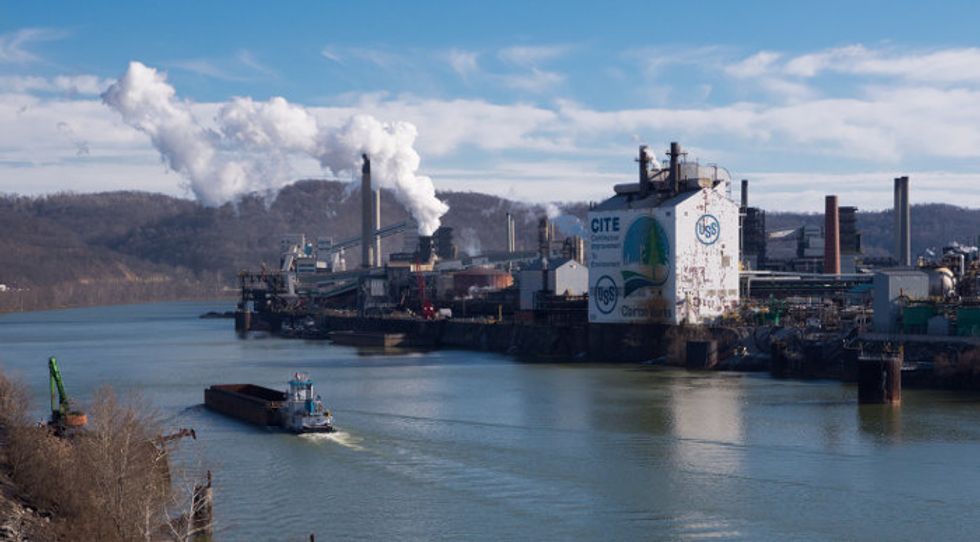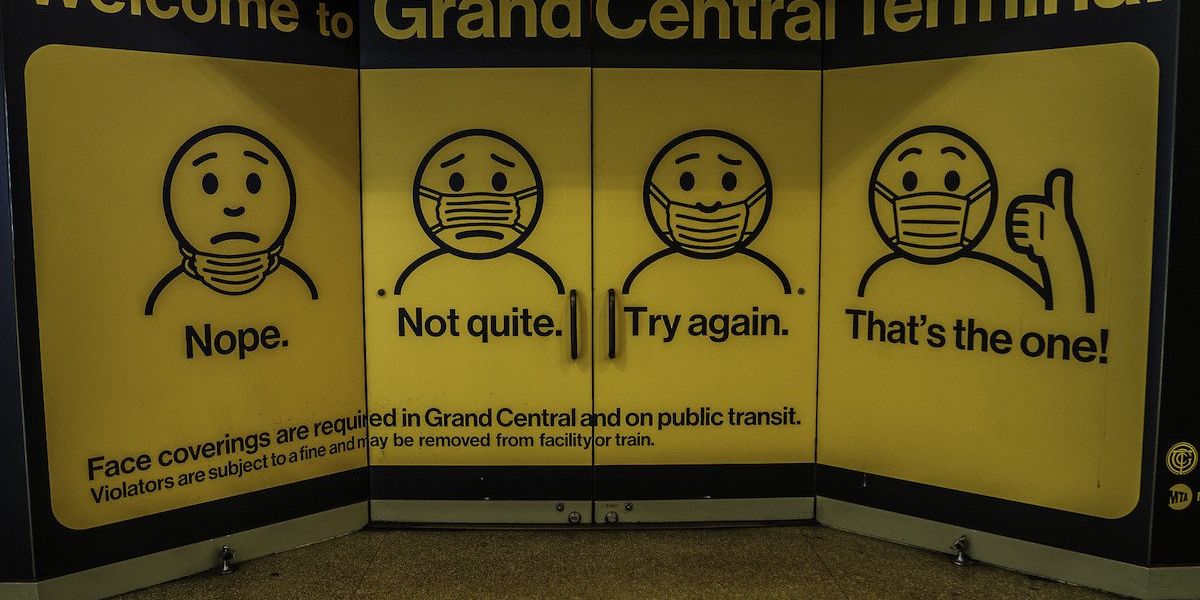
Opinion: How Gov. Scott quietly stole Florida's future.
A decade ago Florida led the fight to reduce greenhouse emissions. Now the state is dealing with the debacle of inaction.
Opinion: How Gov. Scott quietly stole Florida's future
Gov. Rick Scott touring Flagler Beach, Fla., in the wake of Hurricane Matthew earlier this month. Photo by Carolyn Allen/Gov. Scott's office
Oct. 24, 2016
A decade ago Florida led the fight to reduce greenhouse emissions. Now the state is dealing with the debacle of inaction.
By Debbie Harrison Rumberger
The Daily Climate
Less than a decade ago, Florida was poised to become a global leader in reducing greenhouse gas emissions. This was a time of hope—a belief that we could still avoid the most severe impacts of a rapidly warming planet.
The irony of what has happened since makes the ecosystem collapse underway right now throughout south Florida even more heartbreaking.
When Rick Scott entered the Governor's office, the hard work of building broad bi-partisan support for addressing climate change was done.
As a member of the Florida Energy and Climate Action Team, I was privileged to work with leading scientists, legislators, energy and utility leaders and environmentalists in a unified effort to see our state become a climate leader. We set out to tackle both emissions reductions and clean energy investment.
The resulting 2008 Florida Energy and Climate Action Plan aimed to reduce GHG emissions to 1990 levels by 2025, with a $28 billion benefit to the state. Florida was to put in place a renewable portfolio standard to advance clean energy investment, institute transportation and infrastructure changes, improve agriculture and forestry practices, and establish a cap-and-trade program. More than 50 policy recommendations would have put us on a path to a more stable climate.
Optimism abounded. I had been appointed to the newly created Florida Energy and Climate Commission established to enact the climate action plan. As the South Florida Director of World Wildlife Fund and a resident of the Florida Keys, I was intimately aware of the risk climate change was presenting in our state.
I had raised my child wandering among the mangroves, learning the tidal flats and discovering the kaleidoscope of life at the reef. There was a sense we could still succeed in leaving our children a sustainable world.
But a new message emerged from Tallahassee after the 2010 elections: Florida is a climate-denying state and discussion of the subject by government is prohibited.
Gov. Rick Scott needed less than four months to abolish the Climate Commission, cleanse the state websites of anything that referenced "climate change" or "global warming" and prohibit the use of those terms by state employees.
Climate-related undertakings screeched to a halt. Scott has a standard response to climate policy inquiries from journalists and the public: "I'm not a scientist." Some leaders see that as reason to get educated. Scott saw that as excuse for inaction.
Meanwhile Florida, a peninsular state barely above sea level with 1,350 miles of coastline, is the poster child for escalating climate impacts.
Saltwater intrusion is threatening the Biscayne Bay aquifer, the drinking supply for 7 million Floridians from the Palm Beaches to Key West, due to rising seas.
Steadily increasing temperatures contribute to toxic algae blooms that are clogging our estuaries while causing massive sea grass die-offs and fish kills.
Cooling canals for south Florida's nuclear power plant are too hot to keep the towers cool, requiring the diversion of massive amounts of additional freshwater into the canals.
Corals are bleaching extensively, salt-tolerant vegetation is creeping further inland. Wet and dry seasons are erratic.
Zika, Dengue fever, West Nile disease, parasitic screw worms—all contracted from vectors attracted to the increasing heat and humidity—are infesting our neighborhoods.
And "sunny-day" flooding—from tides, rather than storms—is becoming a frequent reminder of all that we've lost as our Governor has chosen to reject climate change science along with the health and safety of our people and environment.
When Rick Scott entered the Governor's office, the hard work of building broad bi-partisan support for addressing climate change and preparing a utility-supported plan of action was done. Florida was on its way to turning that "hockey stick" graph of rising emissions downward. Had we kept that momentum and work going, Florida's greenhouse gas emissions next year would be below levels in 2000.
Instead Floridians are facing the realization that, given the chance to protect his citizens, Gov. Scott quietly stole our future.
Debbie Harrison Rumberger directed the Florida programs of the Wilderness Society and World Wildlife Fund for three decades. An environmental planner and policy advisor, she is now legislative advocate for the Florida League of Women Voters. She has served on numerous state and federal commissions, including the Florida Keys National Marine Sanctuary Council, the South Florida Regional Planning Council, and the Florida Energy and Climate Commission.
Image of Florida flooding courtesy Rob Bixby/flickr.
The Daily Climate is an independent, foundation-funded news service covering energy, the environment and climate change. Find us on Twitter @TheDailyClimate or email editor Brian Bienkowski at bbienkowski [at] EHN.org















